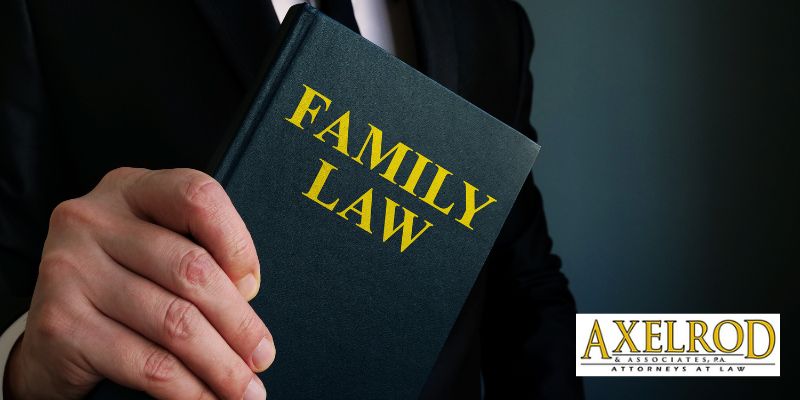4701 Oleander Drive, Suite A
Myrtle Beach, SC 29577
4701 Oleander Drive, Suite A
Myrtle Beach, SC 29577
Little River Family Lawyer
Little River Family Law Attorney
Family law cases are often difficult and emotional. The outcome of these cases can impact your family’s entire life. Families are important to each other, so court issues such as divorce and child custody have the potential to be incredibly stressful and worrying. One way to protect yourself and your family is to work with an experienced South Carolina family law attorney. An attorney can help you reach an agreement outside of court, represent you in court, and provide you with legal support and counsel throughout the process.

Axelrod & Associates: Protecting Your Family’s Interests
At Axelrod & Associates, we want to represent your family in Little River. For years, our firm has proudly helped families in the surrounding communities. We have over 100 years of combined experience in various areas of law, providing us with the understanding and knowledge of the legal process to guide you to a favorable outcome.
We understand how much is at stake for you and your family in a family law case. Our goal is to help you make the most informed decisions regarding your legal options and protect your family’s interests. We can help you and your spouse or co-parent negotiate or mediate an agreement, or we can advocate for your needs in court if an agreement isn’t possible.
Common Family Law Cases
Family law covers several cases, many of which occur during divorce proceedings. However, these issues can also arise independently. Family law includes divorce, spousal support, child custody and support, and order modification.
Divorce
Divorce is one of the most common types of family law cases. The process of divorce can be overwhelming and exhausting, even if you and your spouse are in agreement about important aspects of the divorce. An attorney can help the negotiation process move more quickly and limit conflicts. An attorney can help spouses work together, which can be helpful for separation agreements and divorces where there are children involved. However, it’s important to work with an attorney who knows when litigation is necessary and does not hesitate to take a case to court if negotiation is impossible.
Division of Property
Property division happens most commonly during a divorce, and it allows spouses to separate their marital property as fairly and with as little conflict as possible. South Carolina is an equitable distribution state, which means that assets are split equitably and not equally. If your marital assets are divided by the court and not by a separation agreement, the court will look at several factors to determine what is a fair split of assets between spouses. When you split assets through a separation agreement, you can choose how to separate property. The court will approve the agreement unless it is unfair to one party.
Spousal Support
Depending on the financial situation of each spouse at the time of separation, spousal support may be part of a divorce. This could be discussed during negotiation or ordered by the court. Spousal support is a payment that one party pays to their ex-spouse. The purpose of spousal support is to provide each party with the same quality of life they grew used to during marriage.
Spousal support payments are usually necessary if one spouse has a significantly higher income than the other. One party may have made educational or career sacrifices for the benefit of the marriage. Spousal support provides that party with financial stability for a certain period of time.
Child Custody, Visitation, and Support
These decisions regarding the care of children could be part of divorce proceedings, or they could be the result of separation between two unmarried parents.
South Carolina courts prefer shared custody between parents if possible, as it considers this arrangement to be in the child’s interests. The court may instead assign partial custody, full custody with visitation, or full custody with no visitation.
The purpose of child support is to provide a child of separation or divorce with the same financial support they would have received if their parents remained together. It also ensures that the standard of living between the homes is equal. Child custody often depends on the custody each parent has and, therefore, the amount of financial care they are responsible for. It also depends on the income of each parent.
Family Law Attorneys FAQs
Q: At What Age Can a Child Choose Which Parent to Live With in South Carolina?
A: In South Carolina, children can only make decisions about where they live when they reach the age of 18 and are no longer legally children. Until the age of 18, the court may take the wishes of a child into consideration when determining custody. A child who is older and considered mature by the court will have their opinions given more weight. However, the court is never required to listen to the child’s wishes, especially if it contradicts the child’s interests.
Q: How Do I File for Child Custody in South Carolina?
A: A petition for custody can be filed with South Carolina courts during a divorce proceeding or paternity determination. This paperwork requests custody, explains why you should be granted custody, and outlines a potential parenting plan. Once this is filed with the court, a copy of the petition must be served on the other parent. The parent can respond and either agree or disagree with the petition. Parents are then expected to attempt to negotiate a parenting plan. If no agreement can be reached, the case enters litigation.
Q: What Is the Most Useful Evidence for Child Custody?
A: To prove that you deserve partial or full child custody, you must prove why this is in the child’s interests. The court generally assumes that joint custody is preferable for the child unless shown evidence otherwise. Evidence of negligence, recklessness, abandonment, or abuse by a co-parent would show that joint custody is not in your child’s interests. To prove that you should have full or partial custody, you can also show evidence of a safe and stable home, financial stability, and your relationship with your child.
Q: What Rights Do Fathers Have in South Carolina?
A: Fathers who have established paternity have the same parental rights as any parent. Both parents have equal parental rights to their child. This includes the right to child custody and visitation and the right to pay or receive child support. Parental rights and responsibilities also include the right to make important decisions for their child.
Contact Axelrod & Associates
A family law attorney can protect the interests and needs of your family. Contact Axelrod & Associates today to see how we can provide you with legal support in your family law case.
Need help? Contact Axelrod & Associates, P.A.

Request your
Consultation
The fields marked with * are mandatory.






